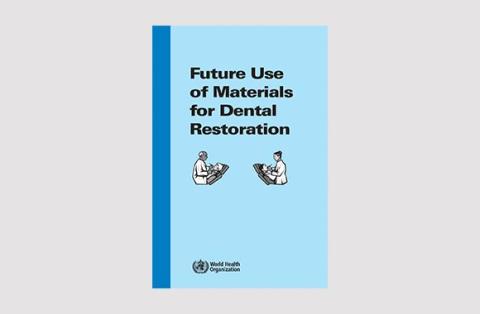Minamata Convention on Mercury
What is the Convention about?
The Minamata Convention on Mercury is a global treaty to protect human health and the environment from the negative effects of mercury. It was adopted in October 2013 and entered into force in August 2017. To date, more than 100 countries have ratified the Convention and FDI has supported its implementation since its adoption.

The Convention has specific provisions for dental amalgam — a metal mixture used for tooth fillings containing 50% mercury that has been used around the world to repair tooth decay for over 150 years.
In the Convention, dental amalgam is the only mercury-added material subject to a phase-down. All other mercury-added materials addressed in the Convention are subject to a ban or phase-out.
Annex A, Part II, of Article 4 on mercury-added products and dental amalgam outlines nine provisions for the phase-down of dental amalgam; ratifying countries must commit to implement two or more of these provisions. FDI has focused advocacy efforts on the provisions relating to: prevention; promoting research and development of quality mercury-free materials for dental restoration; and best management practices for amalgam waste.
Affordable alternatives to dental amalgam are not available everywhere. In many parts of the world, dental amalgam is often the only available resource to repair tooth decay. Therefore, FDI advocates a phase-down, and not a complete phase-out, of this material. Prohibiting the use of dental amalgam before appropriate alternatives are available would negatively impact oral health from both an individual and population perspective.
To successfully phase-down dental amalgam, there must be a greater emphasis on prevention, increased research on amalgam alternatives, and best management practices for amalgam waste.
FDI and it members, partners, and individual dental professionals have a critical role to play in ensuring that the impact of the convention is positive. Dental professionals living in a country that has ratified the Convention need to be aware of the direct impact this will have on their profession.
FDI encourages dental practitioners to:
- find out if their country has ratified the Convention and how this will affect the future work of their practice;
- collaborate with the government agency tasked with developing the country’s action plan around the Convention;
- ensure the voice of the oral health community is heard and realistic targets are set around amalgam phase-down at a national level.
FDI will continue the dialogue with industries on the manufacture of safe alternatives to dental amalgam and call for affordable access, specifically in low-and middle-income countries (LMICs).
For more information, read Dental restorative materials and the Minamata Convention on Mercury: guidelines for successful implementation.
FDI has observer status at the Conference of the Parties (COP), which is the decision-making body of the Convention. At the COP, all countries and regional economic organizations that have agreed to abide by the Convention come together to review compliance with the Convention and promote its effective implementation.
FDI represents its members and the oral health community, more broadly, at the COP meetings to inform discussions around the importance of dental amalgam phase down, rather than phase out. FDI’s position has always been that amalgam phase-down can only be a reality if access to safe, effective, affordable alternatives, specifically in low- and middle-income countries, are made a priority together with financial support.
FDI took a leadership role during the negotiation stage of the Convention and together with our members, the World Health Organization (WHO), and the International Association for Dental Research (IADR), successfully lobbied for the phase-down and not phase-out of dental amalgam.

